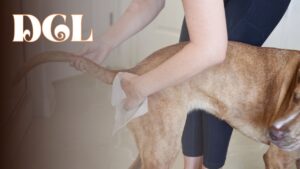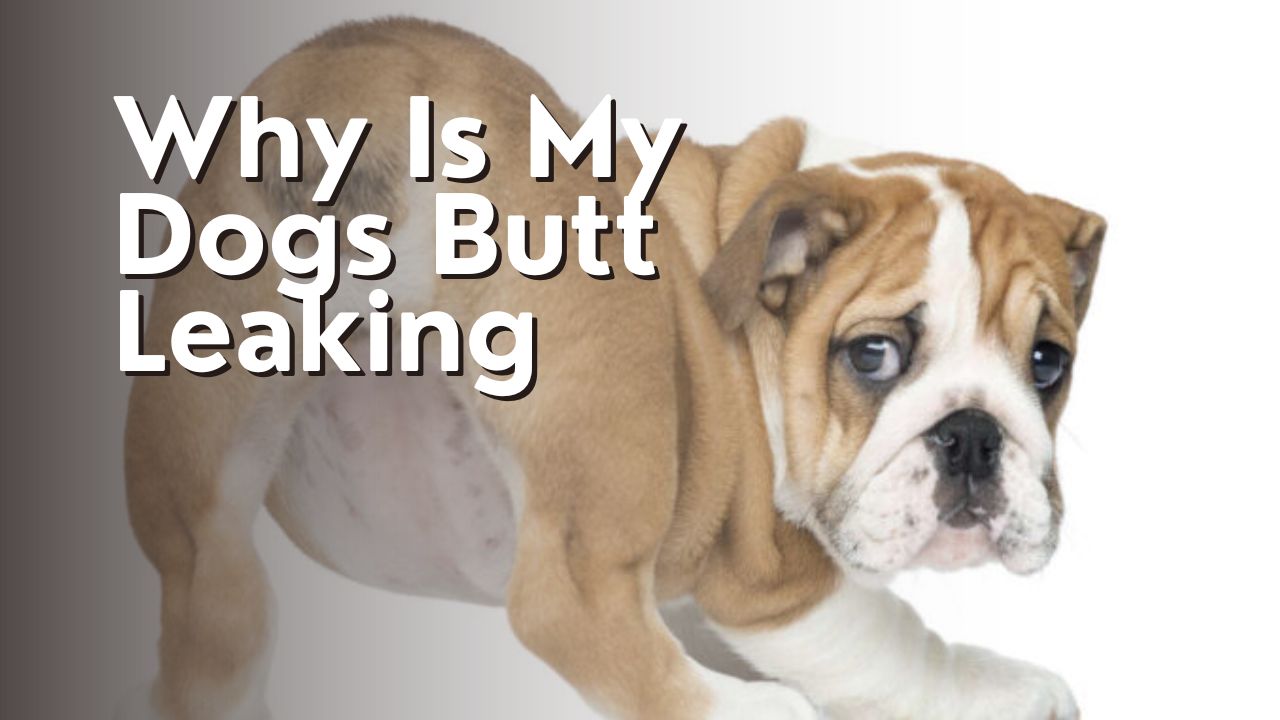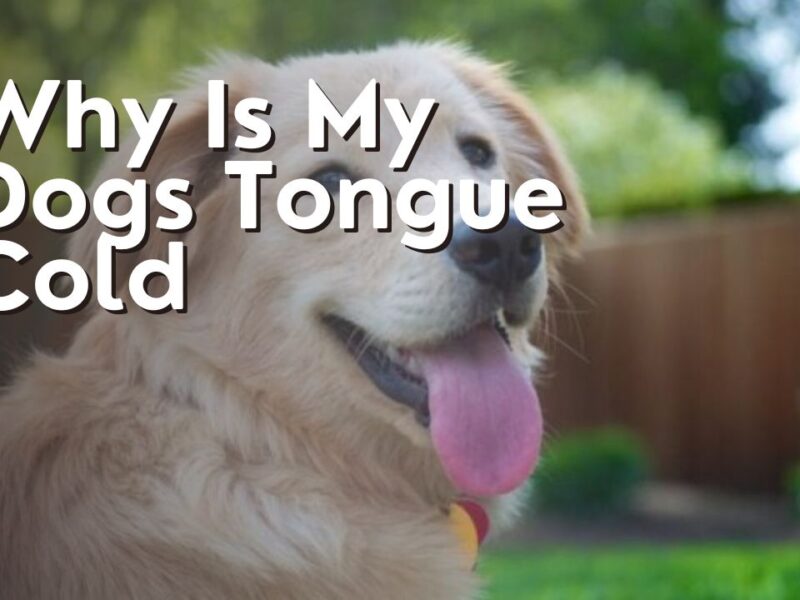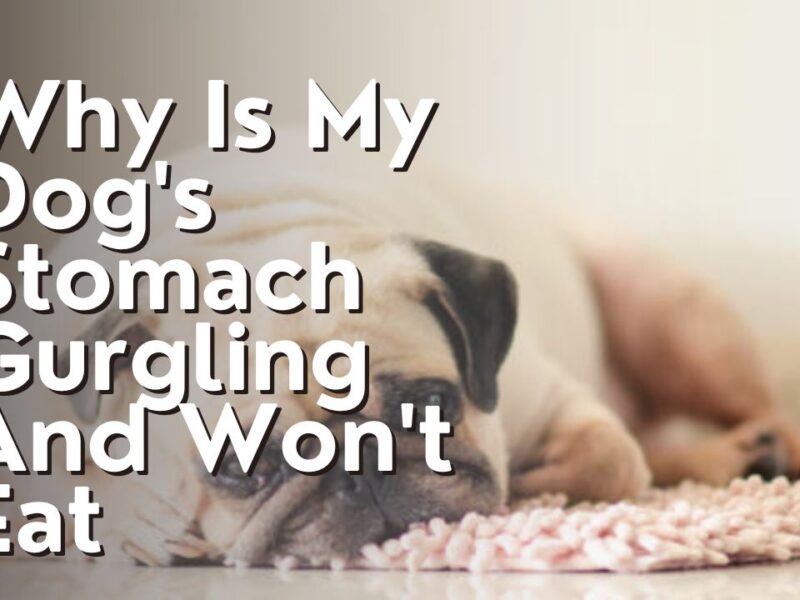Hey there! Ever wondered why your furry friend’s butt is leaking? Well, look no further because I’ve got all the answers for you.
In this article, we’ll dive into the possible causes of anal leakage in dogs, the symptoms you should keep an eye out for, and when it’s time to seek veterinary care.
But don’t worry, I’ve got you covered with some home remedies and management tips as well. Plus, we’ll discuss how to prevent this unpleasant issue and provide long-term care for your pup.
So, if you’re ready to get to the bottom of why your dog’s butt is leaking and find some solutions, let’s jump right in!
Possible Causes of Anal Leakage in Dogs
You need to find out what’s causing your dog’s butt to leak because it could be a sign of something serious and you don’t want your furry friend to suffer. There are several possible causes for anal leakage in dogs, and it’s important to identify the root cause to provide the appropriate treatment.
One possible cause is anal gland problems. Dogs have two small glands located on either side of their anus, and these glands produce a foul-smelling liquid that helps with marking territory. If these glands become blocked or infected, they can cause leakage.
Another potential cause is diarrhea. If your dog has loose stools, it can lead to leakage as well.
Food allergies or sensitivities can also contribute to anal leakage. Certain ingredients in your dog’s food could be causing digestive issues, leading to leakage.
Additionally, parasites such as worms can irritate the rectum, causing leakage.
It’s crucial to consult with a veterinarian to determine the exact cause of your dog’s anal leakage. They can perform a thorough examination and recommend appropriate tests to diagnose the underlying issue. Remember, early intervention is key to preventing further discomfort for your furry friend.

Symptoms to Look Out For
When it comes to anal leakage in dogs, there are a few symptoms that pet owners should be aware of.
Firstly, if you notice your dog frequently licking or scooting their butt on the ground, it could be a sign of anal leakage.
Additionally, a foul odor coming from your dog’s rear end may also indicate a problem.
Lastly, if you observe any redness or swelling around the anal area, it’s important to take action and seek veterinary advice.
Frequent Licking or Scooting
Amidst all the fur and tail wagging, frequent licking or scooting of my dog’s rear end could indicate a potential issue. It’s important to pay attention to these behaviors and take action if necessary. Here are four reasons why my dog’s frequent licking or scooting might be a cause for concern:
- Discomfort: Constant licking or scooting could mean my dog is experiencing discomfort or pain in the anal area.
- Anal Gland Problems: Dogs have anal glands that can become impacted or infected, leading to discomfort and the need for frequent licking or scooting.
- Allergies: Allergies can cause itching and irritation in the anal area, prompting my dog to lick or scoot.
- Parasites: Parasites such as fleas or worms can irritate my dog’s rear end, causing them to lick or scoot to alleviate the discomfort.
If I notice my dog exhibiting these behaviors, it’s essential to consult a veterinarian to determine the underlying cause and provide appropriate treatment.
Foul Odor
After a day of running and playing, I may notice an unpleasant odor emanating from my furry friend. This foul smell could be coming from my dog’s butt. It’s not a pleasant experience, but it’s important to address the issue.
A foul odor could indicate an infection or an issue with their anal glands. These glands are responsible for producing a scent that dogs use to mark their territory. If they become blocked or infected, it can lead to discomfort and a strong smell.
To alleviate this, I should take my dog to the vet for a check-up. The vet will be able to diagnose the problem and provide the necessary treatment, which may include expressing the anal glands or prescribing medication.
It’s always better to address these issues sooner rather than later for my dog’s health and well-being.
Redness or Swelling
If you notice redness or swelling in your furry friend, it’s important to seek veterinary attention. These symptoms could indicate a variety of issues, including infections, allergies, or even tumors. Here are four reasons why redness or swelling in your dog’s butt may require medical intervention:
- Infection: Redness and swelling could be a sign of a bacterial or yeast infection, which may require medication to clear up.
- Allergies: Some dogs may have allergies to certain foods or environmental factors, leading to redness and swelling in the anal area.
- Anal gland problems: If the anal glands become impacted or infected, they can cause discomfort and inflammation.
- Tumors: While less common, redness and swelling could also be a symptom of a tumor in the anal area, which would require further evaluation and treatment.
Remember, it’s always best to consult with a veterinarian to determine the cause and appropriate treatment for your dog’s symptoms.
When to Seek Veterinary Care
When it comes to your furry friend’s health, knowing when to seek veterinary care for a leaking butt is crucial. While some cases of redness or swelling around the anus can be managed at home, there are certain signs that indicate a visit to the vet is necessary.
In the table below, I have outlined the situations in which seeking veterinary care is recommended:
| Situation | Description |
|---|---|
| Persistent leakage | If your dog’s butt continues to leak despite your efforts to clean and manage the issue, it may be a sign of an underlying health problem. |
| Foul odor | A strong, unpleasant smell emanating from your dog’s anal area could indicate an infection or abscess. |
| Pain or discomfort | If your dog seems to be in pain, excessively licking or biting at their rear end, it could be a sign of an anal gland issue or other medical problem. |
| Changes in behavior | Any significant changes in your dog’s behavior, such as loss of appetite, lethargy, or difficulty walking, should prompt a visit to the vet. |
| Bleeding | If you notice blood in your dog’s anal area or on their feces, it is important to have them examined by a veterinarian to determine the cause. |
Remember, it’s always better to err on the side of caution when it comes to your pet’s health. If you are unsure whether your dog’s leaking butt requires veterinary attention, don’t hesitate to reach out to your veterinarian for guidance.
Home Remedies and Management Tips
In this section, I’ll discuss some home remedies and management tips for dealing with anal gland issues in dogs.
One option is to try expressing the anal glands yourself, but it’s important to learn the proper technique from a veterinarian to avoid injury.
Another approach is to make dietary modifications. For example, you can add fiber to your dog’s diet to help promote regular bowel movements.
Regular exercise is also important. It can help keep the anal glands empty and prevent them from becoming impacted.
Lastly, maintaining good hygiene by regularly cleaning the area can help prevent infection and further complications.
Expressing Anal Glands
Did you know that sometimes your dog’s butt leaks because their anal glands need to be expressed? It might sound gross, but expressing the anal glands is an important part of your dog’s hygiene and overall health.
These glands, located on either side of the anus, produce a smelly fluid that is normally released when your dog poops. However, sometimes these glands can become blocked or overfilled, causing discomfort and leakage.
Expressing the anal glands involves manually emptying them, which can be done by a veterinarian or a trained groomer. However, if you feel comfortable doing it yourself, you can learn how to do it safely at home. Just remember to use gloves, gentle pressure, and consult your vet for guidance.
Regularly expressing your dog’s anal glands can help prevent any leaks or infections from occurring.
Dietary Modifications
One way to improve your dog’s overall health and hygiene is by making dietary modifications. By providing your dog with a balanced and nutritious diet, you can help prevent anal gland issues and reduce the likelihood of their butt leaking. Here are a few dietary tips to consider:
- Increase fiber intake:
- Add high-fiber vegetables like pumpkin or sweet potatoes to their meals.
- Incorporate fiber-rich fruits such as apples or blueberries as occasional treats.
- Adjust protein sources:
- Opt for lean proteins like chicken or fish instead of fatty meats.
- Consider switching to a high-quality, grain-free dog food that contains easily digestible proteins.
By following these dietary modifications, you can support your dog’s digestive system and potentially reduce the frequency of anal gland problems. Remember to consult with your veterinarian before making any significant changes to your dog’s diet.
Regular Exercise and Hygiene
Regular exercise and proper hygiene are essential for maintaining your dog’s overall health and wellness. Exercise helps regulate your dog’s digestive system, preventing constipation and promoting healthy bowel movements. Physical activity also helps strengthen your dog’s muscles, including those in the pelvic area, which can improve their ability to control their bowel movements.
Additionally, regular exercise helps reduce stress and anxiety in dogs, which can also contribute to digestive issues.
In terms of hygiene, regularly cleaning your dog’s anal area can help prevent the buildup of bacteria and irritants that may lead to leakage. It is important to use a gentle, pet-friendly cleanser and to dry the area thoroughly.
Regular exercise and proper hygiene are simple yet effective ways to support your dog’s overall well-being and minimize the occurrence of butt leakage.
Prevention and Long-Term Care
When it comes to prevention and long-term care for my dog, I prioritize three key factors: regular vet check-ups, a high-quality diet, and proper hygiene practices.
By scheduling routine visits with my vet, I can catch any potential health issues early on and address them before they become serious.
Feeding my dog a nutritious diet is crucial in promoting overall wellness and preventing common ailments.
In addition to a healthy diet, maintaining good hygiene practices is essential for my dog’s well-being.
By following these preventive measures and providing long-term care, I can ensure that my dog stays healthy and happy.

Regular Vet Check-ups
Make sure you schedule those vet check-ups to keep your furry friend in tip-top shape! Regular visits to the vet are crucial to maintaining your dog’s overall health and well-being. Here are four reasons why regular vet check-ups are important:
- Early detection of health issues: Regular check-ups allow the vet to identify any potential health concerns before they become serious problems. This can help prevent further complications and ensure prompt treatment.
- Vaccinations and preventive care: Vets can administer necessary vaccinations and provide preventive care measures, such as heartworm prevention and flea control, to keep your dog protected from various diseases and parasites.
- Dental care: Regular dental cleanings and examinations can help prevent dental diseases, such as gum infections and tooth decay, which can lead to pain and discomfort for your dog.
- Nutritional guidance: Vets can provide valuable advice on your dog’s diet and nutrition, ensuring they receive the right nutrients for optimal health and longevity.
Remember, regular vet check-ups are an essential part of responsible pet ownership!
High-Quality Diet
Ensuring your furry friend has a high-quality diet is key to keeping them healthy and thriving. Feeding your dog nutritious and balanced meals not only supports their overall well-being, but it can also help prevent health issues like a leaking butt.
A high-quality diet consists of premium dog food that is rich in essential nutrients, such as proteins, vitamins, and minerals. Avoiding cheap and low-quality dog food that may contain fillers and artificial additives is important.
Additionally, it is crucial to provide fresh water at all times to keep your dog hydrated. Consulting with a veterinarian can help you determine the best diet for your dog’s specific needs and address any concerns about their digestive health.
Remember, a healthy diet is a foundation for a happy and problem-free doggy bum.
Proper Hygiene Practices
Maintaining appropriate hygiene practices is essential for promoting your furry companion’s overall well-being and preventing any potential health issues. When it comes to your dog’s butt leaking, proper hygiene is crucial to address the issue. Firstly, it is important to regularly clean your dog’s anal area using mild, pet-safe wipes or a damp cloth. Make sure to gently wipe from the top to the bottom, avoiding any harsh scrubbing. Secondly, keeping your dog’s fur around the anal area trimmed can help prevent any fecal matter or debris from getting stuck and causing irritation. Lastly, ensure that your dog’s bedding and living area are kept clean and sanitized to minimize the risk of bacterial infections. Remember, maintaining good hygiene practices is key to keeping your dog happy and healthy.
| Tips for Proper Hygiene Practices |
|---|
| Clean your dog’s anal area regularly |
| Trim the fur around the anal area to prevent debris buildup |
| Keep your dog’s living area clean and sanitized |
Frequently Asked Questions
Can anal leakage in dogs be a sign of a more serious underlying condition?
Yes, anal leakage in dogs can indicate a more serious underlying condition. It could be a sign of anal gland issues, infection, inflammation, or even tumors. It’s important to consult a veterinarian for proper diagnosis and treatment.
Is there a specific diet that can help reduce anal leakage in dogs?
A specific diet can help reduce anal leakage in dogs. It’s important to consult with a veterinarian to determine the best diet for your dog’s specific needs and to address any underlying health conditions.
Are there any over-the-counter medications that can treat anal leakage in dogs?
There are over-the-counter medications available to treat anal leakage in dogs. It is important to consult with a veterinarian to determine the most appropriate medication for your dog’s specific condition.
Can stress or anxiety contribute to anal leakage in dogs?
Stress and anxiety can potentially contribute to anal leakage in dogs. These conditions can lead to increased bowel movements and muscle tension, which may cause the leakage. Consulting a veterinarian is recommended for proper diagnosis and treatment.
How can I prevent my dog from developing anal leakage in the future?
To prevent anal leakage in my dog in the future, I will ensure a balanced diet with enough fiber, regular exercise, and regular visits to the vet. I will also keep their anal area clean and check for any signs of discomfort.
Conclusion
In conclusion, dealing with a dog’s anal leakage can be concerning and uncomfortable for both the dog and the owner. It is important to identify the underlying cause and seek veterinary care if necessary.
With proper diagnosis and treatment, along with home remedies and management tips, the issue can be effectively addressed. Taking preventive measures and providing long-term care can help minimize the chances of recurrence.
Remember to consult with your veterinarian for personalized advice and guidance in managing this condition.


